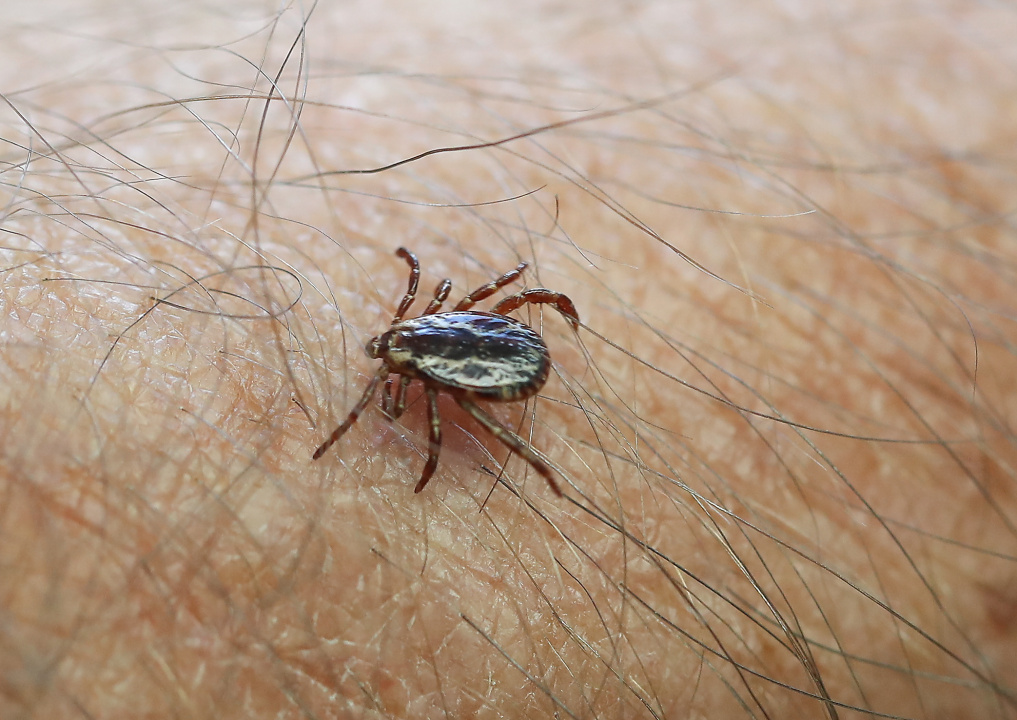Tick Safety Important Across Nova Scotia

Blacklegged ticks are known to transmit diseases; the Province is urging Nova Scotians to reduce their risk by covering skin and checking for ticks, among other measures. (Province of Nova Scotia / File)
Tick populations are growing in every part of Nova Scotia, urban and rural. With the temperature above freezing, it is important for people to take the necessary steps to protect themselves, their family and pets.
“Ticks are not just a nuisance, they carry serious diseases,” said Provincial Medical Officer of Health Dr. Jennifer Cram. “That’s why it’s important to take simple precautions like using insect repellants before you spend time outdoors and checking for ticks on your body daily.”
Ticks like moist and humid environments and can often be found in areas of high vegetation such as tall grass, shrubs, urban parks, gardens and forests.
There are several kinds of ticks in Nova Scotia, including the blacklegged tick, which is known to transmit diseases such as Lyme disease, anaplasmosis, babesiosis and Powassan virus infection.
People can reduce their risk by:
- checking their clothing and body carefully for ticks after spending time outside
- wearing long pants and long sleeves in areas likely to have ticks
- wearing light-coloured clothing (light colours make it easier to see ticks)
- wearing enclosed shoes and tucking their pants into their socks
- walking on well-travelled paths, avoiding long grass and vegetation
- applying insect repellents approved by Health Canada to exposed skin and clothes (following directions carefully).
People with questions or concerns about tick safety or tick-borne diseases can call 811 or the Nova Scotia Health Tick Hotline at 902-266-7199 or toll-free at 1-866-266-7199.
Local pharmacists can assess tick bites and determine if a preventive antibiotic is needed. More information is at: https://novascotia.ca/dhw/pharmacare/healthcare-services.asp
Quick Facts:
- ticks can be found throughout the province as the weather begins to warm, particularly if the temperature is above 4 degrees C
Additional Resources:
More information, including how to remove and dispose of ticks safely, is available at: https://novascotia.ca/ticksafety/
Tick-check poster: https://novascotia.ca/ticksafety/poster.pdf
More information about the Nova Scotia Health Tick Hotline is available at: https://www.nshealth.ca/clinics-programs-and-services/nova-scotia-health-tick-service